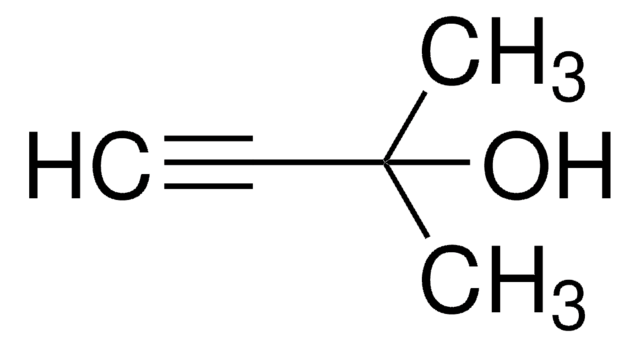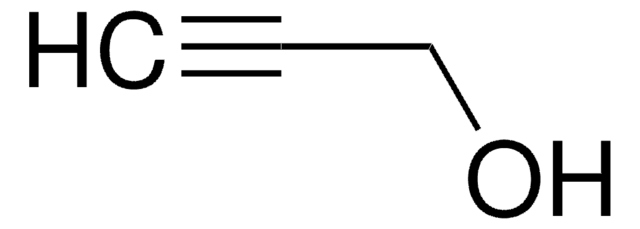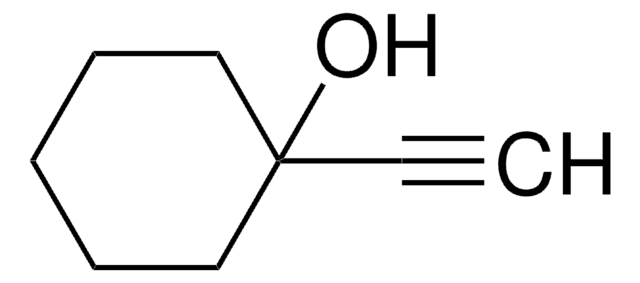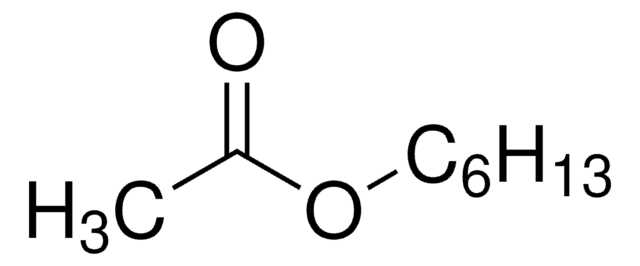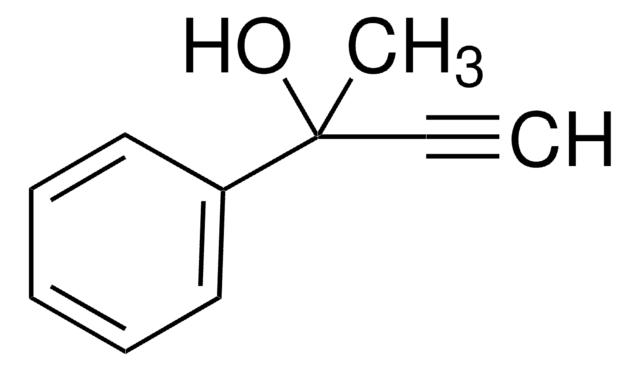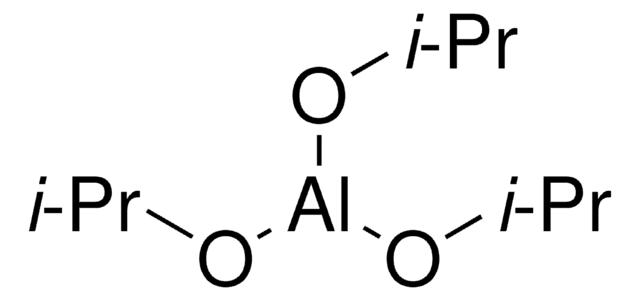137561
3-Methyl-1-pentyn-3-ol
98%
Synonym(s):
Ethyl ethynyl methyl carbinol, Meparfynol
About This Item
Recommended Products
vapor density
3 (vs air)
Quality Level
vapor pressure
6.5 mmHg ( 20 °C)
Assay
98%
form
liquid
refractive index
n20/D 1.431 (lit.)
bp
121-122 °C (lit.)
solubility
Cellosolve: miscible
Stoddard solvent: miscible
acetone: miscible
benzene: miscible
carbon tetrachloride: miscible
cyclohexanone: miscible
diethyl ether: soluble
diethylene glycol: miscible
ethanolamine: miscible
ethyl acetate: miscible
kerosene: miscible
mineral spirits: miscible
neatsfoot oil: miscible
petroleum ether: miscible
soybean oil: miscible
density
0.866 g/mL at 25 °C (lit.)
SMILES string
CCC(C)(O)C#C
InChI
1S/C6H10O/c1-4-6(3,7)5-2/h1,7H,5H2,2-3H3
InChI key
QXLPXWSKPNOQLE-UHFFFAOYSA-N
Looking for similar products? Visit Product Comparison Guide
Related Categories
General description
Application
- A reactant to synthesize α-methylene cyclic carbonates by reacting with carbon dioxide.
- A reactant in the synthesis of 2,6,9-trisubstituted purine based CDK inhibitors.
- An initiator in the synthesis of polylactide bearing terminal propargyl group via ring-opening polymerization of L-lactide.
Biochem/physiol Actions
Signal Word
Danger
Hazard Statements
Precautionary Statements
Hazard Classifications
Acute Tox. 4 Oral - Aquatic Chronic 3 - Eye Dam. 1 - Flam. Liq. 3
Storage Class Code
3 - Flammable liquids
WGK
WGK 2
Flash Point(F)
82.4 °F - closed cup
Flash Point(C)
28 °C - closed cup
Personal Protective Equipment
Certificates of Analysis (COA)
Search for Certificates of Analysis (COA) by entering the products Lot/Batch Number. Lot and Batch Numbers can be found on a product’s label following the words ‘Lot’ or ‘Batch’.
Already Own This Product?
Find documentation for the products that you have recently purchased in the Document Library.
Customers Also Viewed
Our team of scientists has experience in all areas of research including Life Science, Material Science, Chemical Synthesis, Chromatography, Analytical and many others.
Contact Technical Service